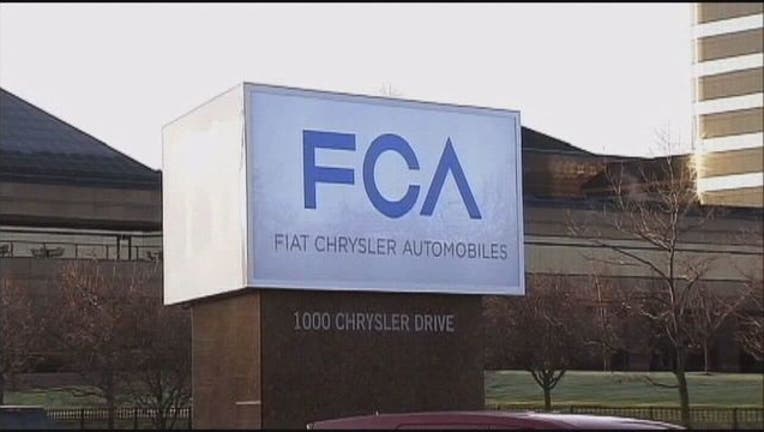US government accuses Fiat Chrysler of cheating on emissions

DETROIT (WJBK) - The U.S. government is accusing Fiat Chrysler of failing to disclose software in some of its pickups and SUVs with diesel engines that allows them to emit more pollution than allowed under the Clean Air Act.
The Environmental Protection Agency said Thursday it had issued a "notice of violation" to the company that covers about 104,000 vehicles including the 2014 through 2016 Jeep Grand Cherokee and Ram pickups, all with 3-liter diesel engines. The California Air Resources Board took similar action.
"Failing to disclose software that affects emissions in a vehicle's engine is a serious violation of the law, which can result in harmful pollution in the air we breathe," said Cynthia Giles, EPA assistant administrator for enforcement and compliance.
Fiat Chrysler quickly issued a statement denying any wrongdoing. You can read the full statement below.
EPA said it will continue to investigate the "nature and impact" of the eight software functions identified through its testing. Regulators were not yet defining the software as so-called "defeat devices" intended to cheat on government emissions tests. However, the agency said that numerous discussions with Fiat Chrysler over the last year had not produced any suitable explanation for why the company had failed to disclose the software, which regulators said caused the vehicles to emit less pollution during testing than during regular driving.
EPA officials said Fiat Chrysler may be liable for civil penalties for the alleged violations of the Clean Air Act. The EPA is investigating whether the auxiliary emission control devices constitute "defeat devices," which are illegal because they turn off pollution controls.
"This is a clear and serious violation of the Clean Air Act," Giles said. "When companies break the law, Americans depend on EPA to step in and enforce."
Fiat Chrysler said in a statement that its emissions control systems "meet the applicable requirements."
The company said it was disappointed with the EPA's action and intends to work with the incoming Trump administration to present its case. Fiat Chrysler said it spent months giving information to the EPA to explain its emissions technology and proposed a number of actions including software changes to address the agency's concerns.
Fiat Chrysler's shares fell more than 16 percent after the news was announced to $9.29.
The announcement comes one day after Fiat rival Volkswagen pleaded guilty in federal court to criminal charges related to widespread cheating involving emissions tests with its "Clean Diesel" line of vehicles. Six high-ranking VW executives have been charged in the scandal. VW agreed to pay a record $4.3 billion penalty for cheating on emissions tests.
FCA US issued this reponse to the EPA:
FCA US is disappointed that the EPA has chosen to issue a notice of violation with respect to the emissions control technology employed in the company's 2014-16 model year light duty 3.0-liter diesel engines.
FCA US intends to work with the incoming administration to present its case and resolve this matter fairly and equitably and to assure the EPA and FCA US customers that the company's diesel-powered vehicles meet all applicable regulatory requirements.
FCA US diesel engines are equipped with state-of-the-art emission control systems hardware, including selective catalytic reduction (SCR). Every auto manufacturer must employ various strategies to control tailpipe emissions in order to balance EPA's regulatory requirements for low nitrogen oxide (NOx) emissions and requirements for engine durability and performance, safety and fuel efficiency. FCA US believes that its emission control systems meet the applicable requirements.
FCA US has spent months providing voluminous information in response to requests from EPA and other governmental authorities and has sought to explain its emissions control technology to EPA representatives. FCA US has proposed a number of actions to address EPA's concerns, including developing extensive software changes to our emissions control strategies that could be implemented in these vehicles immediately to further improve emissions performance.
FCA US looks forward to the opportunity to meet with the EPA's enforcement division and representatives of the new administration to demonstrate that FCA US's emissions control strategies are properly justified and thus are not "defeat devices" under applicable regulations and to resolve this matter expeditiously.
The Associated Press contributed to this report

